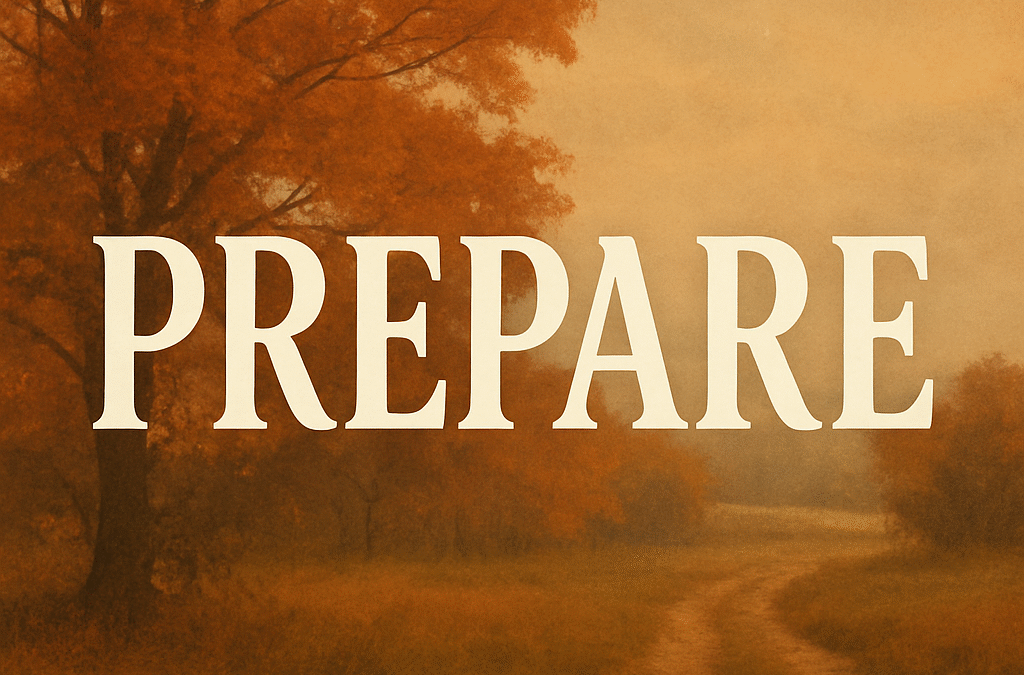
The One Who Came Back
The One Who Came Back
THE ONE WHO CAME BACK
Luke 17:11–19
Press play to listen to “The One Who Came Back.”
THE ONE WHO CAME BACK
Luke 17:11–19
If you had been walking with Jesus that day, the road between Samaria and Galilee would have felt quiet and ordinary. Dust swirling at your feet. Sun warm on your shoulders. Nothing unusual.
Until you saw them.
Ten silhouettes standing far off — the required distance — but also the distance of deep heartbreak. You could feel the weight of their isolation before a word was spoken.
Ten men who hadn’t been touched in years.
Ten men who hadn’t sat at their own tables or hugged their own children.
Ten men exiled from everything familiar.
Then their voices cracked through the stillness:
“Jesus… Master… have mercy on us!”
You know that kind of cry.
The cry that comes from the end of yourself — the cry that doesn’t ask for explanations, only mercy.
And Jesus’ response was simple:
“When He saw them, He said, ‘Go and show yourselves to the priests.’” (Luke 17:14)
A strange instruction, because nothing had changed yet.
No instant transformation.
No visible miracle.
But here’s something we often overlook:
They weren’t wrong to go.
They obeyed the exact words Jesus gave them.
Their obedience was real…
but their hearts had not yet turned back to the Giver.
Still, they turned.
And they walked.
And then, as dust rose under their feet…
“As they went, they were cleansed.” (Luke 17:14)
Look down at your own hands for a moment — imagine if numbness suddenly faded, if color returned, if sensation pulsed where nothing had been for years.
That’s what they felt.
Skin restored.
Strength renewed.
Hope flooding back like sunlight after a storm.
All ten were healed.
And suddenly — everything they lost was now within reach again.
THE NINE WHO RAN FORWARD
Imagine the eruption of joy:
One drops to his knees before sprinting home to see his children.
One races toward the synagogue to be restored.
Another runs shouting for his wife.
One takes off toward his aging parents’ home.
One laughs the whole way.
One cries the whole way.
One turns toward his old work with renewed strength.
Another stares at his hands, turning them over and over in awe.
Can you blame them?
If you had just received your life back, wouldn’t you run too?
They weren’t wicked.
They weren’t rebellious.
They were simply overwhelmed by blessing — so overwhelmed that they ran straight into the future Jesus had given them…
without turning back to Jesus Himself.
They embraced the blessing,
but forgot the Blesser.
They obeyed His words,
but they did not return to His heart.
THE ONE WHO TURNED AROUND
But one man — a Samaritan — stops.
Picture him standing alone on the road, breathing hard, staring at his restored skin.
Feeling the breeze on places that had known only numbness.
Hearing his own heartbeat pounding with joy.
And then…
a tug.
A whisper.
A knowing.
“Go back.
Don’t rush past the One who did this.
Return.”
Have you ever felt that same tug in your own life?
That quiet nudge that says:
“Don’t just enjoy the blessing — come back to Me.”
While nine run forward into life,
he turns around.
He runs back — not for more healing,
but because the healing pointed him to the Healer.
He falls at Jesus’ feet, his voice carrying gratitude through the air.
A heart returned.
A life bowed low.
A blessing acknowledged at the feet of its Giver.
THE QUESTION JESUS STILL ASKS
Jesus looks at him — then at the empty road behind him — and says:
“Were not ten cleansed? Where are the nine?” (Luke 17:17)
Not angry.
Not condemning.
Just the tender grief of love unreturned.
Ten received mercy.
Only one returned with his heart.
THE DEEPER MIRACLE
Then Jesus speaks the blessing that goes beyond skin:
“Rise and go your way; your faith has made you well.” (Luke 17:19)
But the word He used for “made you well” was “sozo” —
a word far deeper than physical healing:
Saved.
Made whole.
Restored.
Healed inside and out.
Ten walked away with clean bodies.
Only one walked away with a clean soul.
Ten were healed.
One was whole.
And without saying a word about theology,
Jesus quietly revealed something profound:
Blessings change circumstances.
Gratitude changes a heart.
WHAT THANKSGIVING REALLY IS
Thanksgiving is not:
Listing the good things.
Thinking positive thoughts.
Acknowledging blessings in your life.
Good ideas — but incomplete.
In Scripture, thanksgiving is the turn.
It’s circling back.
It’s the moment when blessing becomes invitation…
and your heart takes the path the nine never took.
The nine ran toward the life Jesus restored.
The one ran toward Jesus.
THE GENTLE CALL FOR THIS WEEK
This Thanksgiving, somewhere between the noise of the kitchen, the familiar voices, the ache you’re carrying, and the blessings you’re grateful for…
pause.
Look at your own life —
the mercies God has given,
the prayers He has answered,
the strength He has supplied.
Then whisper:
“Jesus… I’m coming back.”
Not just to acknowledge the blessing,
but to sit at the feet of the Blesser.
Don’t settle for being healed.
Come back — and be made whole.




